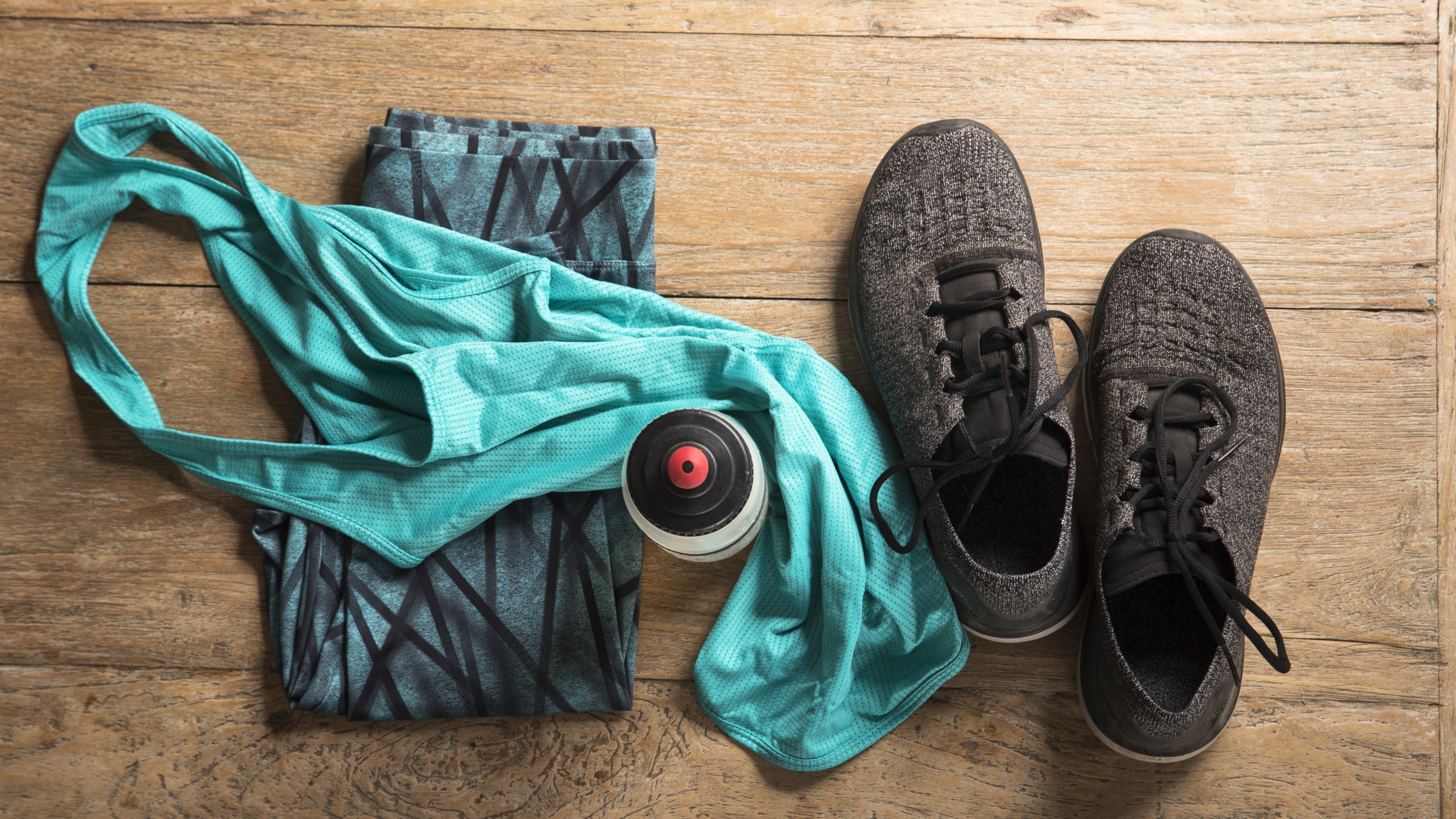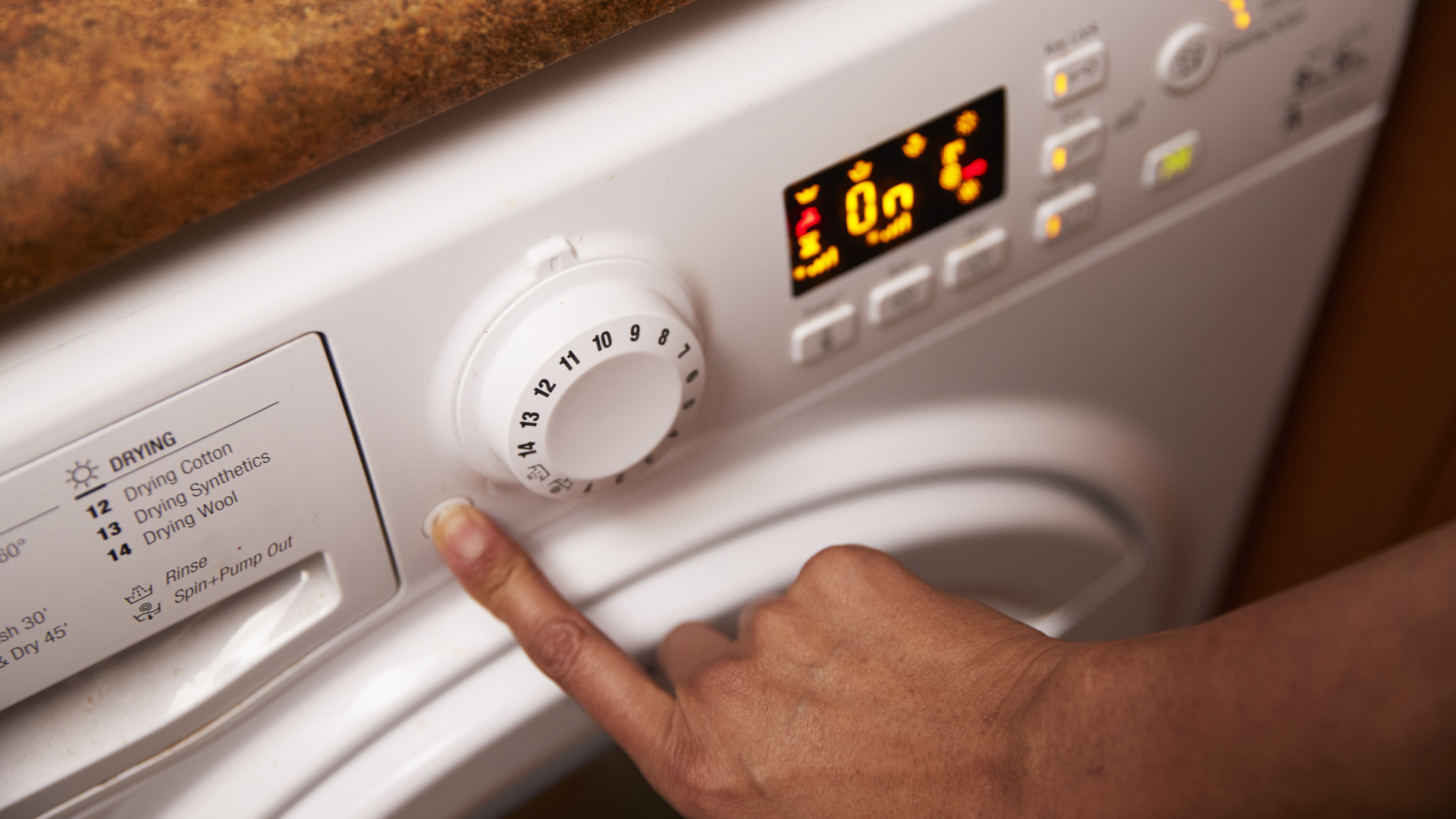Do you really need to wash your running kit every time?
We decided to put this common question to the test and figure out if there’s any real health concern with wearing your running kit more than once without washing it

Questionable hygiene. It’s happened to the best of us. You get home after a long run, strip off your damp kit, toss it aside and hop in the shower. Next, you might do some yoga stretches for runners, then it’s time to get ready for work or put your feet up in front of the TV before bed. At no point do you approach the laundry room. Two days later, you’re recovered and ready for another long run, but when you go to grab your best running shorts and top, you find your kit a pungent, scrunched up petri dish in the corner of your bedroom. Should you wear it anyway? It’s going to get sweaty and smelly pretty quickly, after all. Or is your stinky running kit now a hotbed for bacterial growth, fungus and mold that could lead to some horrific and rare disease? We decided to put this common question to the test and figure out if there’s any real health concern with wearing your running kit more than once without washing it.

Can clothes spread germs?
The question over whether clothes – along with many other high contact surfaces – can spread germs, became commonly discussed back at the beginning of the pandemic, and understandably so. We all wanted to know how the virus was spreading and where we could curtail its transmission. According to the NHS, clothes can spread germs, and germs can remain on fabric for sometime, however they advise that many of the germs on your clothes come from your own body, and are therefore unlikely to cause you any real harm.
Where there could, theoretically at least, be an issue is if you’re handling clothes with material such as blood, vomit or fecal matter on them, so if it was a particularly rough marathon you just ran, please do wash your kit before using it again. Equally, if you’re handling someone else’s blood and poo-covered running kit, not only are you a saint but you definitely should wash your hands afterwards, which we all now know is the best way to curb the spread of germs.
Putting your dirty running kit back on for another 10-miler could also be an issue if you’re wearing said dirty clothes over an open wound or an area of infected skin, but in all honesty you should be keeping wounds covered with gauze or bandages to protect them anyway.
So in short, yes clothes can spread germs, but whether or not that matters a whole lot when you’re just putting on your own acrid running leggings is debatable at best.

Should you wash workout clothes after every use?
If you’re not too fussed about how you smell when you’re running and you are quite fussed about the state of the planet, you might well be wondering if you can skip a few washes here and there.
Though the internet is awash with so-called experts breathlessly warning us to wash our running kits after every use because they are 'breeding grounds' for life-threatening germs, there doesn’t seem to be any great scientific evidence of harm being caused by wearing your running kit a few times without washing it. Yes, even some of the bacteria from your body such as E coli and staph can cause serious harm, that’s more likely to occur in a surgical setting, not simply by wearing a noxious running top. So, take your unwashed kit off before having surgery, ok?
Advnture Newsletter
All the latest inspiration, tips and guides to help you plan your next Advnture!
Certainly, if you tend to go long stretches without washing your kit and you’re noticing skin irritations or fungal conditions arising, there might be a connection between the two, so try washing your kit more often.

Your running underwear, on the other hand, might be a slightly different story. Underwear generally is likely to have more germs on it, for obvious reasons, and to avoid yeast infections and other bacterial infections, it is a good idea to wash your underwear each time. If you’re wearing synthetic running socks you probably also want to wash them pretty regularly to avoid fungal conditions like athlete's foot.
Otherwise, you probably don’t need to wash the other items in your running kit daily if you don’t want to, and despite calls to use very hot water, washing your running kit with detergent according to the instructions on the label is likely to take care of most germs no problem. If you’re keen to cut down on the amount of washing you’re doing for environmental purposes, and to keep your clothes lasting longer, try having several running kits in rotation so you only need to wash them once a week, and check out gear made with merino wool such as Icebreaker’s Cool-Lite Amplify Short Sleeve Low Crewe T-Shirt. Merino wool doesn’t get stinky very easily at all, and it has natural antibacterial properties.
One final public service announcement: if you’re stashing putrid running clothes for your next workout, your colleagues and loved ones may not appreciate it. Think twice before leaving your gamy gear under your desk or in a shared space – the trunk of your car will do very nicely, thank you.
Julia Clarke is a staff writer for Advnture.com and the author of the book Restorative Yoga for Beginners. She loves to explore mountains on foot, bike, skis and belay and then recover on the the yoga mat. Julia graduated with a degree in journalism in 2004 and spent eight years working as a radio presenter in Kansas City, Vermont, Boston and New York City before discovering the joys of the Rocky Mountains. She then detoured west to Colorado and enjoyed 11 years teaching yoga in Vail before returning to her hometown of Glasgow, Scotland in 2020 to focus on family and writing.

